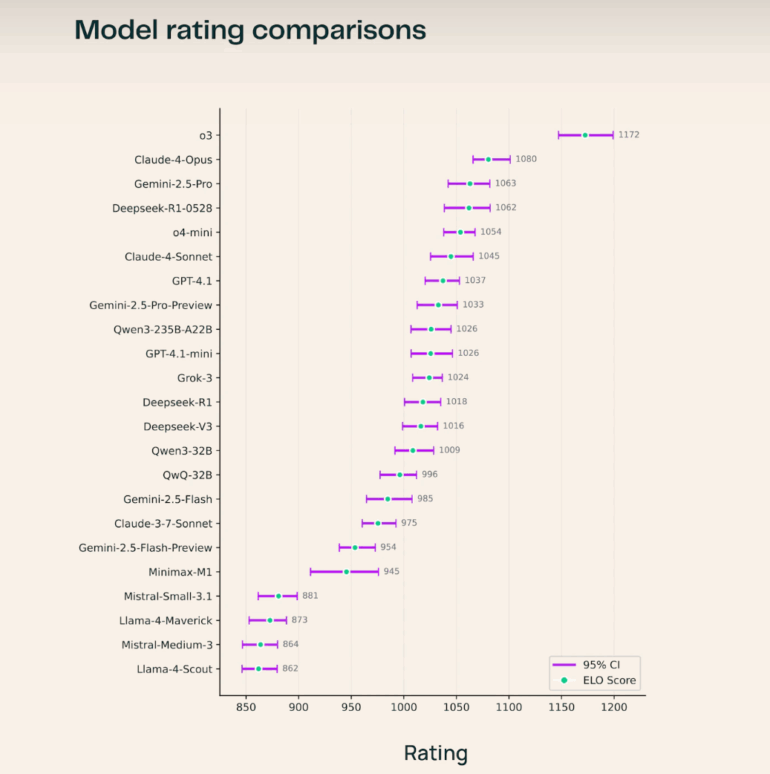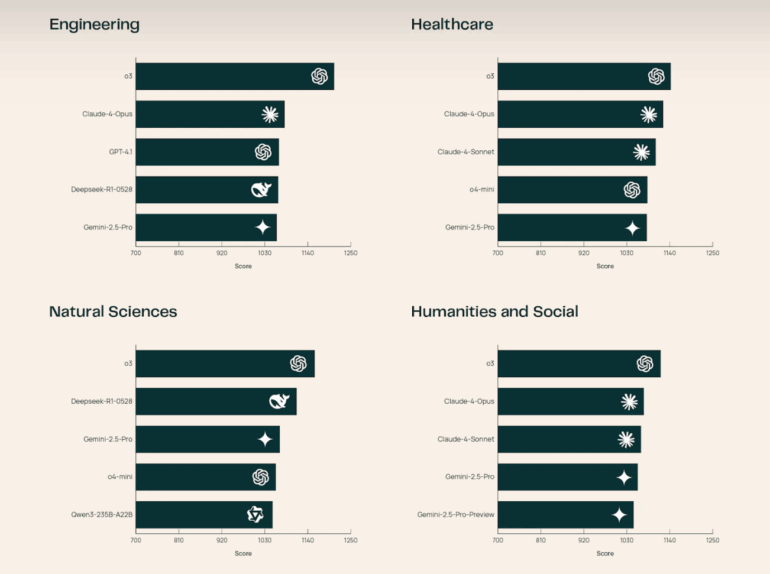ARTICLE AD BOX
A new open platform called SciArena is now available for evaluating large language models (LLMs) on scientific literature tasks based on human preferences. Early results reveal clear performance gaps between different models.
Developed by researchers from Yale University, New York University, and the Allen Institute for AI, SciArena is designed to compare how well both proprietary and open-source LLMs handle tasks involving scientific literature - an area that has seen little systematic evaluation until now.
Unlike traditional benchmarks, SciArena relies on real researchers for evaluation, using a method similar to Chatbot Arena. Users submit scientific questions, receive two model-generated, cited long-form answers, and then decide which response is better. The underlying literature is sourced through a customized retrieval pipeline based on ScholarQA.
So far, more than 13,000 evaluations have been collected from 102 researchers across the natural, engineering, life, and social sciences. The questions range from conceptual explanations to literature searches.
Ad
THE DECODER Newsletter
The most important AI news straight to your inbox.
✓ Weekly
✓ Free
✓ Cancel at any time
o3 leads, open source impresses
OpenAI's o3 model currently tops the leaderboard, ahead of Claude-4-Opus and Gemini-2.5-Pro. Among open-source models, Deepseek-R1-0528 stands out, outperforming several proprietary systems.
 Picture: Ai2
Picture: Ai2According to the team, o3 shows especially strong results in the natural and engineering sciences.
 Picture: Ai2
Picture: Ai2The researchers found that users care most about whether citations are correctly matched to statements, rather than just the total number of citations. Features like answer length have less impact on SciArena than on platforms like Chatbot Arena or Search Arena.
Automated evaluation remains a challenge
The team also introduced SciArena-Eval, a new benchmark that tests language models' ability to judge other models' answers. Even the top-performing models agree with human preferences only about 65 percent of the time, underscoring the current limits of LLM-as-a-Judge systems in the scientific context.
SciArena is open to the public, with code, data, and the SciArena-Eval benchmark all available as open source. The goal is to support the development of more human-aligned models for scientific information tasks. Looking ahead, the platform plans to add evaluations for agent-based research systems.
Recommendation

 4 months ago
18
4 months ago
18



